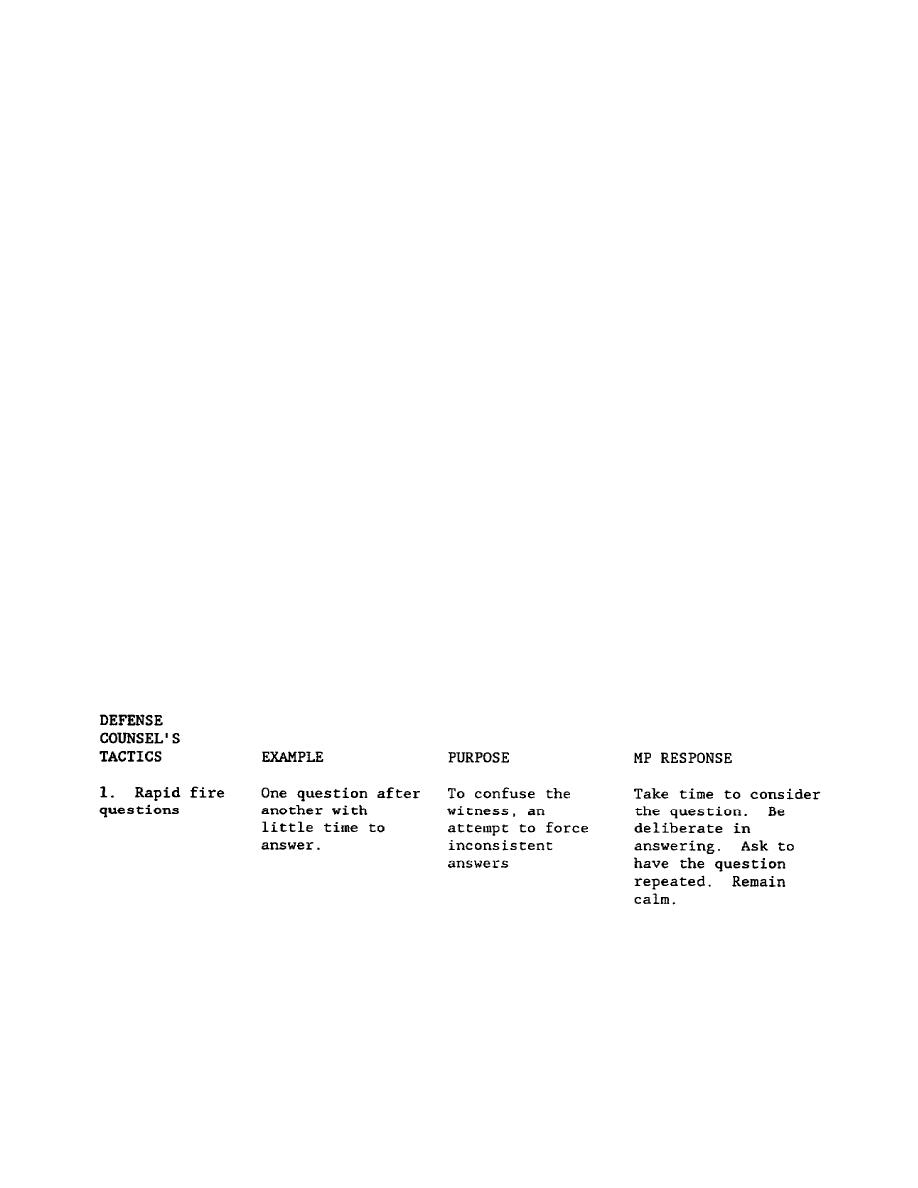
true if you are not familiar with the technical reasons for the objection. If you
have a knowledge of the rules of evidence, you may avoid objections through the
words you use when replying to questions.
b. When an objection is made, stop your testimony.
Wait until the court has
ruled on the objection or instructs you to continue. Do not blurt out an answer to
a question that is objected to by counsel.
c. Answer all questions in a polite courteous way.
After being asked a
question, pause. Consider the question carefully. Then give a deliberate answer.
If you did not hear or understand the question ask that it be repeated. If you do
not know the answer to a question, say, "I don't know." Never "guess" the answer to
a question. Refer to your notes when necessary.
d. Never volunteer information.
If you know the prosecutor has overlooked an
important point, wait until you have been excused and then inform him of the point.
If the prosecutor thinks it is important enough, he will recall you to be the
witness chair.
e. Do not testify as to opinions or conclusions. Your testimony must be based
on facts which you have about the case on trial. Avoid such terms as "I think," "I
believe," "In my opinion," etc.
f. Do not argue.
MPs who argue with the defense counsel will only antagonize
the court. It also gives the impression that he is hostile to the defendant. Rely
on the court to control any unfair questioning tactics of the defense counsel.
PART D - COURT VISITS.
This is a good method to use for MPs to learn about courtroom procedures and
techniques used when testifying: Sit in on an actual court proceeding. In this way
you can observe witnesses under fire. You can them become familiar with the more
common objections raised during testimony.
PART E - COMMON TACTICS OF CROSS-EXAMINATION.
4-3
MP0018



 Previous Page
Previous Page
